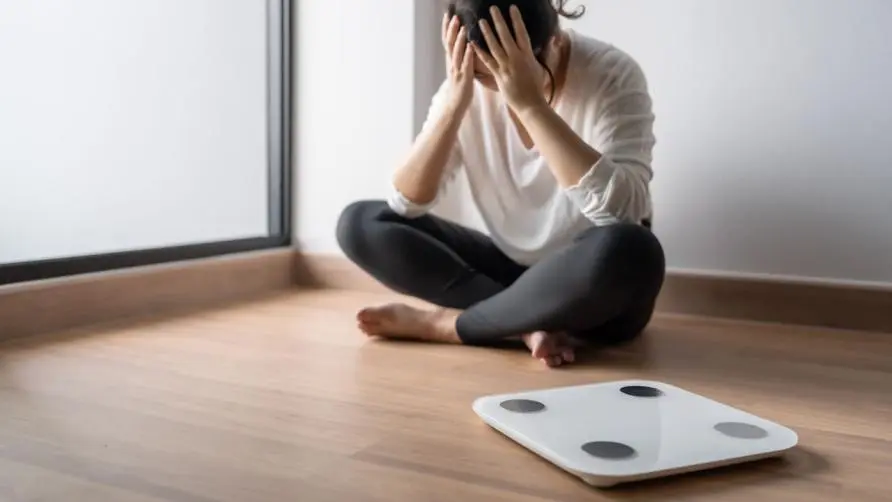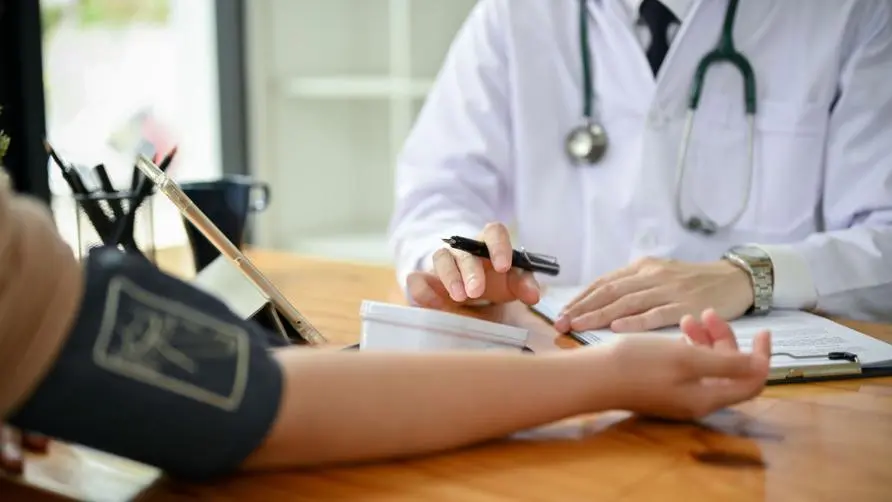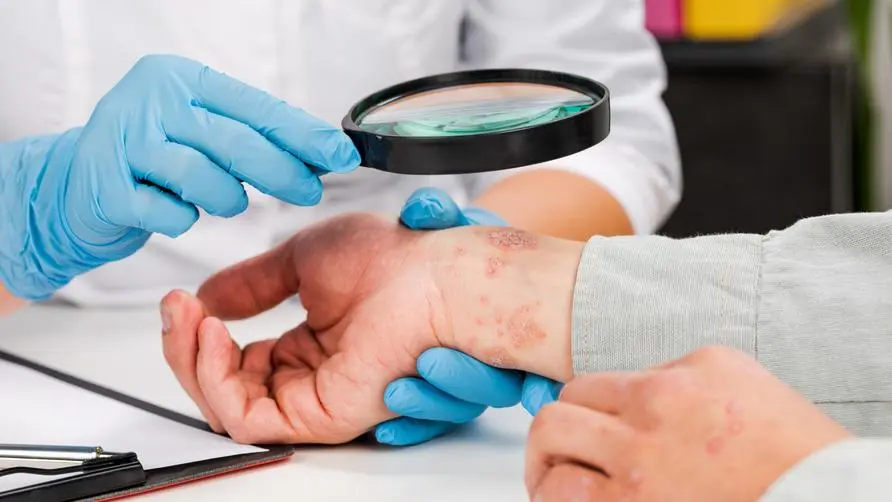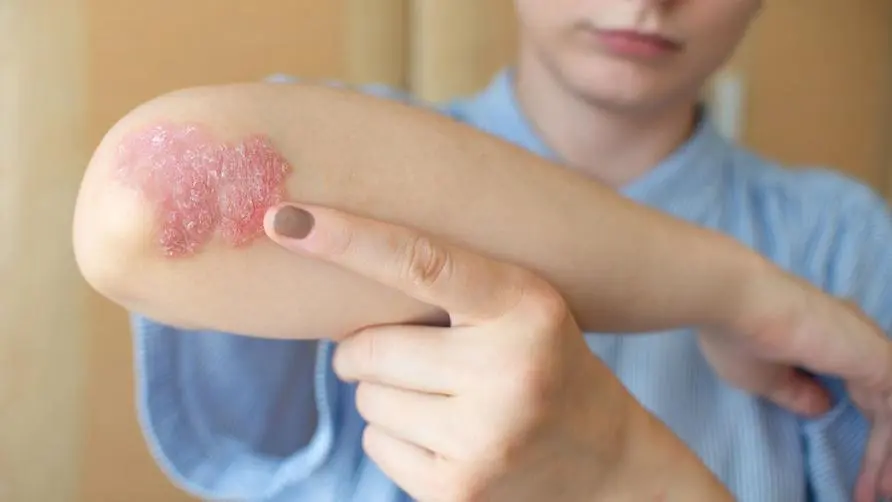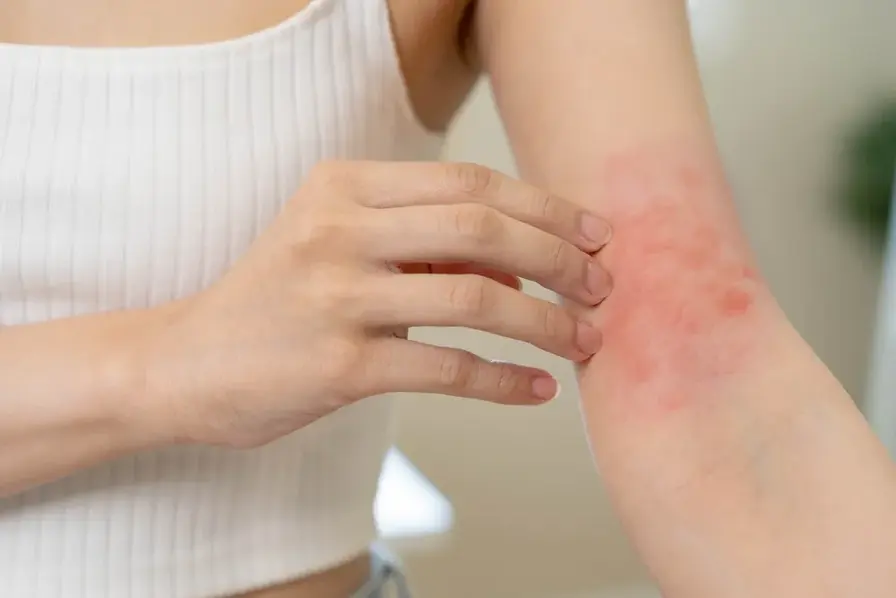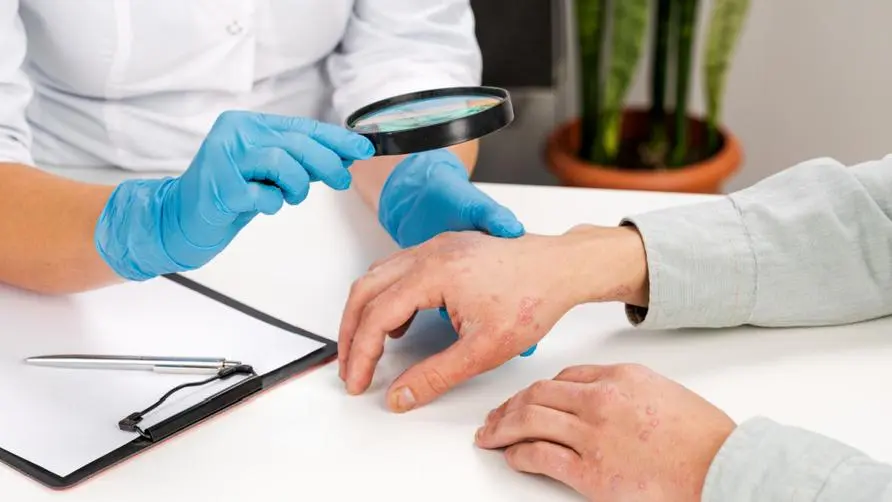Do psoriasis symptoms affect more than just the skin? Delaying medical treatment may lead to blindness and joint inflammation! Doctors reveal "3 steps" to quickly clarify the condition
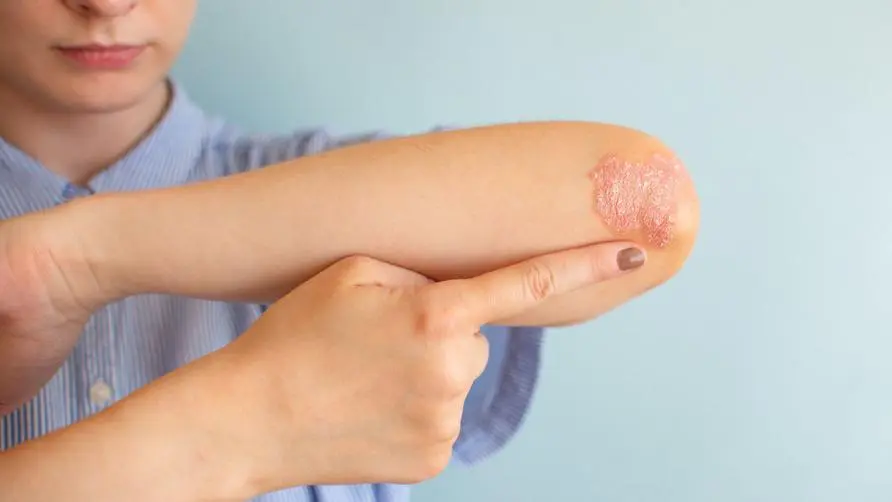
If your skin appears erythema, itching, or scaly scaling, don’t rush to buy your own medicine and rub it on. Could it be a warning sign of the autoimmune disease “psoriasis”? Dr. Cai Yunzhen, the attending physician of the Department of Allergy, Immunology and Rheumatology at Linkou Chang Gung Memorial Hospital, pointed out in an exclusive interview with “Biomedicine Times” that psoriasis is also called “psoriasis” and is also called “psoriasis” because the skin at the affected area is as rough as cowhide. An affected immune system is more likely to cause lesions in the eyes, intestines and even joints.
Psoriasis is not just a skin allergy! Worried about causing irreversible joint disease?
Dr. Cai Yunzhen said that psoriasis is not a simple skin allergy, but an “autoimmune disease.” In the early stages of the onset, it is easily confused with skin diseases such as eczema and atopic dermatitis, so it is not easy to be diagnosed. Some patients even A biopsy through the skin is required for early diagnosis. In addition, about 15-40% of patients with psoriasis will develop psoriatic arthritis. If treatment is delayed, it may cause irreversible joint disease.
Dr. Cai Yunzhen explained that the diagnosis and tracking of psoriasis may also require blood testing for various “inflammatory indexes”, such as C-reactive protein (CRP) and erythrocyte sedimentation rate (ESR). In addition, if first-class relatives have psoriatic arthritis or carry the HLA-B27 gene themselves, they are also prone to develop psoriatic arthritis. Therefore, psoriasis patients with the HLA-B27 gene need to carefully track their joint symptoms.
Is the prevalence of psoriasis different between men and women? Dr. Cai Yunzhen explained that other autoimmune diseases such as lupus erythematosus, Sjögren’s disease or rheumatoid arthritis have a higher proportion of women, but there is no significant difference in the proportion of men and women with psoriasis. Regardless of whether men or women find skin-related lesions or If you have a family history of autoimmune diseases, you should pay special attention to the warning signs of psoriasis.
Should any problems with the eyes, joints, and nails be considered related to psoriasis?
If scaling and erythema appear on any part of the body, it may be a warning sign of psoriasis? Dr. Cai Yunzhen pointed out that psoriasis often occurs on the extensor sides of the limbs, elbows, knees, scalp, or armpits, groin, back, behind the ears, and even on the nails. If not treated properly, erythema can easily spread all over the body. cause deterioration. In addition, psoriasis can easily be combined with diseases such as psoriatic arthritis and iritis, causing problems in other systems.
Dr. Cai Yunzhen said that some iritis is caused by autoimmune diseases, especially related to psoriatic arthritis and ankylosing spondylitis. If diagnosis and treatment are delayed, severe iritis may lead to irreversible damage to vision or even the risk of blindness. When you have eye symptoms such as photophobia and blurred vision, you should seek medical attention as soon as possible to evaluate whether it is simple iritis or related to an autoimmune disease.
Dr. Cai Yunzhen reminded that clinical statistics have found that about 10-30% of psoriasis patients will develop psoriatic arthritis, which is more common in middle-aged and middle-aged people. The onset of psoriatic arthritis may start with skin lesions and then develop. Arthritis may occur at the same time. The initial symptoms of some patients are inflammation at the “bone insertion point” of the heel. It is easy to misunderstand that it is plantar fasciitis, overuse or sports injury. After repeated inspections, it is discovered that it is psoriasis.
Dr. Cai Yunzhen said that psoriasis not only affects the skin and joints, but may also cause nail lesions. Nail damage most likely associated with psoriasis includes pitting, separation of the nail bed, and thickening of the nail. Once the nails appear “drop-shaped depressions” and are easily brittle and cracked, combined with red patches of skin, or have symptoms of psoriatic arthritis such as enlarged limbs and joint pain, you should seek medical attention immediately.
Which groups are most susceptible to psoriasis? What risk factors are likely to induce disease?
What risk factors may be more likely to trigger psoriasis attacks? Dr. Cai Yunzhen pointed out that genetics, stress, obesity, lack of sleep, bad habits such as smoking, alcoholism, or large wounds on the skin all require special attention. Especially in special life stages such as entering higher education, changing jobs, etc., if you notice a rash on your skin, you should be aware of whether it is a sign of psoriasis and seek medical evaluation at a rheumatoid allergy department as soon as possible.
Many psoriasis patients listen to rumors on the Internet and buy “health foods” or “supplements” in the hope of helping relieve symptoms. Dr. Cai Yunzhen explained that people with immune diseases such as psoriasis and atopic dermatitis may have abnormally active immune systems. Taking supplements from unknown sources can easily aggravate the inflammatory reaction and even worsen the lesions. In addition, consuming excessively nutritious food, bacterial (such as streptococcus) infection after injury, taking certain drugs (such as anti-malarial drugs, quinine, blood pressure drugs, etc.), drinking too much or being too stressed may all lead to psoriasis outbreaks. Special attention should be paid to ethnic groups with relevant risk factors.
When patients need physical recuperation, they should consult a qualified Chinese medicine practitioner for evaluation. You should also pay attention to the situation “after taking supplements”. If the lesions worsen, feel tired or even have a slight fever after taking supplements, it may be a signal that the body is releasing inflammation. It is best to stop taking supplements immediately and consult a medical professional.
Daily self-care for psoriasis? Learn the “336 Rule” to detect psoriasis early
Dr. Cai Yunzhen said that in order to increase awareness of psoriasis and improve early diagnosis, it is recommended that the public should master the “336 rule”: psoriasis occurs in more than “3 places” on the body (scalp, nails and skin), and joints appear red, swollen, stiff, and painful. Those with “three major warning signs” must grasp the “6-month” golden treatment period and seek medical treatment as soon as possible to control the condition.
In addition to active treatment, psoriasis patients should also pay attention to self-care in daily life. Dr. Cai Yunzhen reminded that if patients with psoriasis feel that the affected area is frequently itchy, it is recommended to “gently pat instead of scratching.” In addition, when wearing woolen clothing, they must avoid rubbing the body and replace it with loose, cotton clothing. Patients also need to pay attention to trimming their nails regularly and can do appropriate exercise on weekdays. However, large-scale severe skin trauma may cause lesions, so protective measures must be prepared before exercise to avoid affecting the wound.
Further reading:
